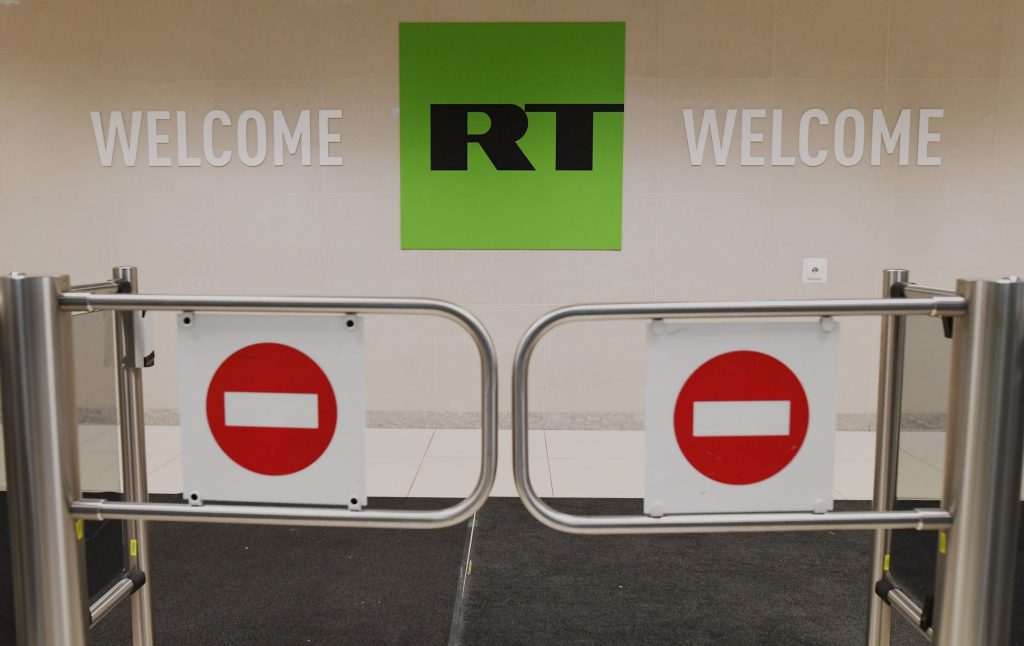The Biden administration recently declassified information claiming that the Russian state media outlet RT has engaged in “covert information and influence operations and military procurement” on behalf of the Kremlin, according to Secretary of State Antony Blinken. This release aimed to support new sanctions against RT but did not include the underlying documents—only their findings.
While this strategic declassification is a positive move, it misses a key opportunity by not making the records themselves public. Here are two important reasons why this matters.
First, declassifying the records could bolster support for a decision that raises significant First Amendment concerns. It would allow press advocates and skeptics to critically assess the administration’s claims, promoting an informed dialogue that is central to American values. While allegations of military procurement and influence operations sound alarming, it is crucial to analyze and challenge them. Concerns about press freedom arise particularly in cases involving state-funded journalists in countries like Russia, where serious retaliation can occur. We must remember that the documents released should not be seen as unbiased truth; they often reflect subjective interpretations.
Americans deserve clarity on what constitutes “information and influence” operations by state-sponsored media that the government deems punishable. All state media, including those in the U.S., have a role in promoting government interests, and citizens are entitled to access foreign propaganda if they choose. If RT’s alleged activities are not markedly different from those of other government-funded outlets, this investigation could expose journalists worldwide to undue risk.
The issue of cherry-picked evidence is not hypothetical. The Bush administration, for instance, relied on discredited intelligence to justify the Iraq War. Similarly, the Biden administration has shown a willingness to overlook free speech concerns in the name of national security, as seen in its support for banning TikTok and prosecuting Julian Assange.
The second reason to declassify the records is the current presidential election cycle, during which one candidate has made baseless and threatening claims about the press. Providing the public with details about RT’s alleged abuses could counter politicians’ false equivalencies to the behavior of American media outlets they criticize.
In summary, making the underlying documents public would enhance accountability and foster a more informed public discourse, reinforcing the fundamental principles of democracy.
The Biden Administration’s Secret-Sharing Program
The recent declassification regarding RT is not an isolated event; the Biden administration has frequently opted to selectively downgrade classified information. Notably, the administration has declassified intelligence on Russian activities in Ukraine, a strategy deemed effective in countering disinformation. This success led the White House to establish a broader program for sharing secrets when it aligns with strategic objectives, as detailed in a Time magazine investigation.
This approach to declassification is notable for its centralized nature, operating under the White House rather than the intelligence community, and its frequency—sometimes multiple times a day. The program has facilitated crucial intelligence sharing that helped de-escalate military tensions in the Balkans, countered Chinese threats following Nancy Pelosi’s visit to Taiwan, and persuaded Iran to halt Houthi attacks on merchant vessels in the Red Sea.
The National Security Council leads this initiative, while agencies like the CIA ultimately determine what gets declassified. This presents challenges, as intelligence officers are often hesitant to release classified information. To mitigate these concerns, the administration typically requests individual data points rather than full reports, combining declassified intelligence with open-source information before release.
Show Your Work
While the White House’s declassification efforts should continue, it’s crucial for the administration to recognize that credibility is vital to overcoming historical issues with flawed intelligence and propaganda misuse. The solution is clear: declassify the underlying documents themselves. This would counter claims that the intelligence presented is cherry-picked or unreliable.
In future instances of strategic declassification, the administration should make its processes transparent by allowing the public access to the relevant documents. While this won’t resolve the broader issue of overclassification, and it shouldn’t overshadow the need to release records that reveal uncomfortable truths, it represents a meaningful step forward.

